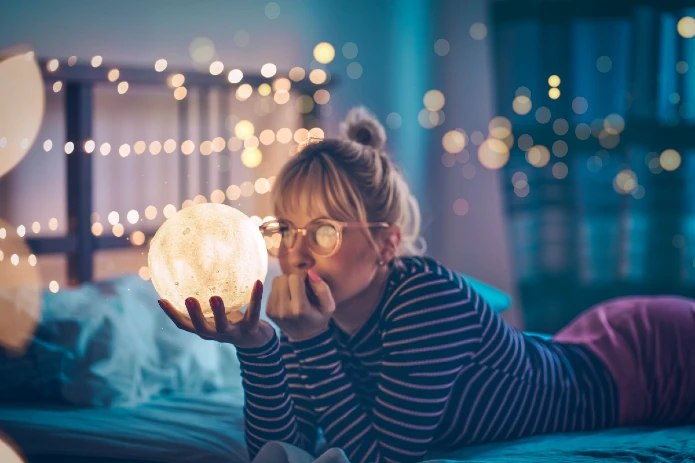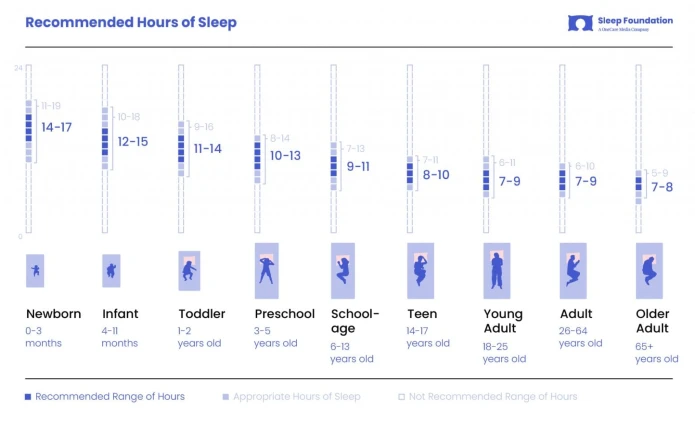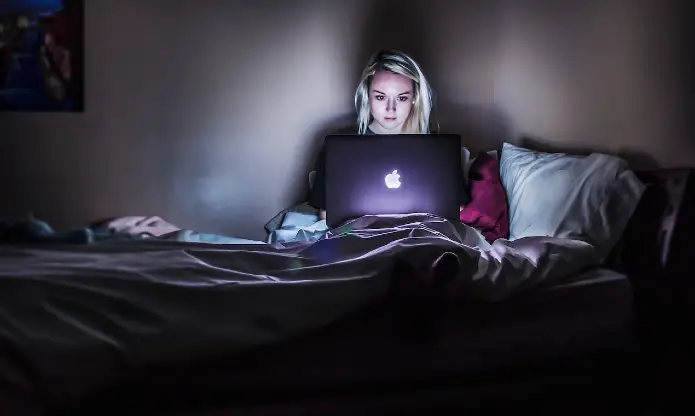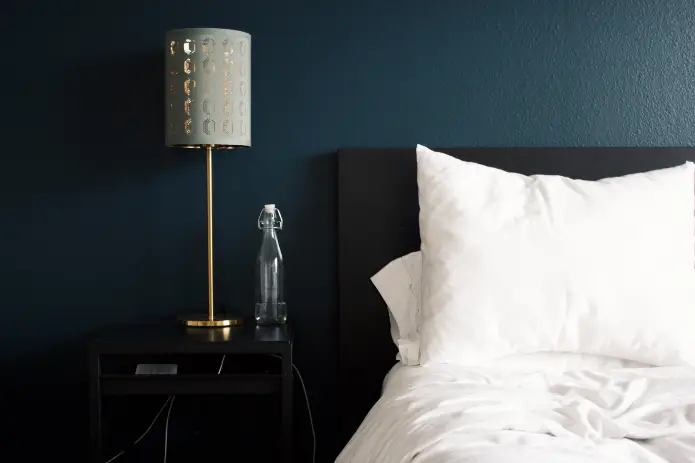
Sleep tips for creativity
As a creative, sleep should be an essential part of life. I’ve compiled nine sleep tips for creativity to help you get the rest you need to produce your best work.
Indeed, sleep is more than just a way to recharge your physical body and brain. It also has a significant effect on your creative thinking.
One study from Loughborough University, for example, found that people deprived of sleep have a more challenging time coming up with creative ideas and that one night is enough to see an impact.
Let me walk you through my nine sleep tips for creativity (sleep quantity, caffeine, exercise, meditation, no screen, digestion, your room, naps, sleep schedule, go to sleep empty), and let’s end the sleep struggle: Sleep should work for your creativity—not against it!
How Much Sleep Do You Need?
According to the National Sleep Foundation, adults should get 7-9 hours of sleep per night. However, many people are not getting this much sleep in today’s world.

One of the new recommendations acknowledges that, while we all need a certain amount of sleep to feel rested, some people may require more or less. The amount of sleep you need is different for everyone and depends on your overall health, daily activities, and how regularly you slept in the past.
RELATED: National Sleep Foundation Diary (free PDF)
Easy on the caffeine
Caffeine is a stimulant drug consumed for its effects on the central nervous system. Found in coffee, tea, and many other drinks, caffeine has been shown to increase alertness and improve concentration. It also increases heart rate, blood pressure, and metabolism.
However, caffeine can decrease sleep quality by making it difficult to get into deep sleep states, leading to a less restful night of sleep which can cause a lack of creativity the next day when you are trying to solve problems or come up with new ideas.
Try to stop your caffeine intake by 1 or 2 pm to leave plenty of time for your body to process it before bedtime. And, of course, enjoy your coffee or tea in moderation.

RELATED: Improve your sleep quality thanks to these 6 simple products
Exercise
Physical exercise is a great way to promote good sleep and can mean different things based on your body and ability: A walk after dinner, some stretching mid-afternoon, or some cardio in the morning.
Exercising at a moderate-to-vigorous level will reduce the time it takes to fall asleep and decrease how long you lie awake in bed.
Try (or retry) meditation
This is my go-to sleep tip for creativity as a mindfulness meditation teacher.
Meditation has been shown to promote better sleep. There are many different ways to meditate, and the best way for you may be different than someone else.
There are many benefits of meditation that can help with your sleep. Meditation helps you calm down and relax, which is great for getting a good night’s rest. It also helps you focus on the present moment, which is helpful for not worrying about the past or future, two patterns that keep your mind active at bedtime.
I offer mindfulness meditation lessons, as well as mindfulness meditation for organizations. Reach out if I can help you.
RELATED: Prepare for the night with this 61 points guided meditation

Try to keep the screens out of the room
The blue light emitted from screens can disrupt the body’s natural circadian rhythm and make it difficult to fall asleep.
Studies have shown that people who spend more time on screens before bedtime are more likely to have sleep problems, so try to avoid looking at bright screens two to three hours before bed.
Reading a book is preferable to watching TV or doomscrolling in bed, and most ebook readers (like my beloved Kobo Libra H2O) now have a night mode that reduces the amount of blue light they emit.
RELATED: Tips to pick your next book
Eat light meals a couple of hours before bedtime
It is essential to eat lightly before going to sleep. Overeating before bedtime can disrupt the natural digestive process and cause discomfort.
The stomach needs time to digest food and prepare for sleep. Eating a heavy meal before bedtime can lead to indigestion, heartburn, or other digestive issues that may keep you up at night. It is preferable to stop eating about three hours before going to bed.
Notice how you should stop eating and staring at your phone around the same time every night. Is there an opportunity for these habits to reinforce each other? Maybe a bedtime ritual?
RELATED: Why we sleep
You’ll sleep best in a cool, dark room
The quality of sleep depends on many factors, such as the temperature in the room, light exposure, noise levels, and more.
Recommendations vary, but the low-mid 60’s Fahrenheit (or 15-17 ℃) seem to be the sweet spot. This is potentially the most difficult sleep tip for creativity to take when you share your bedroom with someone else who would rather sleep in a warmer room.
Still, the best way to get a good night’s sleep is to have a cool dark room with no light or noise disturbance. This might mean unplugging electronic equipment with LED or plasma displays or moving them to another room.

Naps are risky
Napping is a great way to improve your sleep quality and daytime alertness. However, finding the time for a nap during the day can be tricky. If you are not careful with naps, they can disrupt your circadian rhythm and make it harder to fall asleep at night.
The best time for a nap is in the afternoon, between 1 and 4 pm when your body temperature starts to drop, and studies have shown that the ideal length is between 10 and 20 minutes. This will help you avoid feeling groggy or sleepy when you wake up from your nap.
Sleep schedule
If you are a night owl (someone who tends to stay up late), it may be difficult for you to get up early in the morning. On the other hand, if you are an early riser (someone who tends to wake up at dawn), staying awake in the evening may be difficult.
A chronotype is a person’s natural inclination to sleep or be most alert based on the time of day. Chronotypes are real, and it has nothing to do with one’s willpower or “being lazy.” Unfortunately, our society favors early risers, and night owls must comply with schedules that go against what their bodies need. Try to organize your creative work to get to work at your optimal time.
Final sleep tip for creativity: go to sleep empty
I’m not talking about your bladder, although you should definitely empty it too.
I’m talking about your mind. We’ve already covered meditation, but I want to reiterate how important it is to go to sleep with a quiet mind.
If you find yourself overthinking a creative problem you need to solve, it could be beneficial to journal and do a “brain dump” of ideas, worries, hopes, etc. The idea is to extract these discursive thoughts from your head so you can go to sleep at peace. If this proves to be challenging, it’s OK to say out loud: “I’ll think about this tomorrow,” or “I’ll take care of this tomorrow, but for now, I’m going to sleep.”
Can you think of another tip?
Do you have a bedtime ritual? Can you drink coffee at 8 pm and still fall asleep fine (I’m impressed)?
Chime in in the comments below.